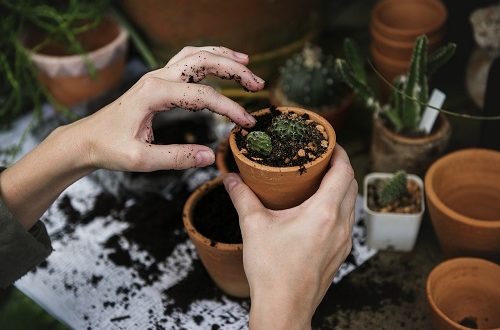Guest contributor Suttons Seeds gives advice on greening up your garden
Being eco-friendly is growing in importance around the world. Glaciers are shrinking, ice on rivers is breaking up earlier than it should, animals are needing to relocate, and trees are flowering sooner. Scientists are predicting that global temperatures will keep rising for several decades, mainly because of greenhouse gases that are produced by human activity.
So, how can we as individuals help combat climate change? While there are many ways for us to cut our carbon footprint, there are several ways in which the urban garden can benefit our environment. After all, according to the Royal Horticulture Society (RHS), with more than 85% of the British population living in towns and cities, our gardens make up a quarter of total urban areas in many cities.
The importance of plants in our gardens
Owning and maintaining a garden is like having your own outdoor air-conditioning system for the planet. Did you know that the shelter of trees and hedges can act as insulation in the winter to help bring down energy consumption and heating costs? Place your plants carefully around your property to reduce the speed of the air movement reaching your building. However, make sure you don’t create any unwanted wind tunnels directed towards your house.
There’s also the opportunity to provide shade by planting more. It’s predicted that If we increased our vegetated surfaces in urban areas by as little as 10% then we could help control the summer air temperatures that climate change is bringing. This would also help reduce CO2 emissions.
Did you know that around 25% of UK front gardens are entirely paved and more than five million don’t have any plants, according to The Royal Horticultural Society? London was the biggest culprit and the effect of this is raising urban temperatures and the loss of biodiversity.
Plants, flowers and evergreen shrubs are key to air quality, since they absorb carbon dioxide and release oxygen. With vehicle usage increasing, plants are playing a vital part in counteracting some emissions that automobiles are releasing.
How are you using water?
Heatwaves are becoming standard — but these can have an effect on our gardens, which in turn will harm our environment. If you don’t already have one, get a water butt. If you do have one, add another! Catching rain water to use on your floral displays and lawn will help you minimise your mains water usage, thus helping the environment and aiding self-sufficiency.
The proportion of household water used in the garden increases more than 30% when it gets hot. So, what do you do? A water butt can be an effective tool — especially with hosepipe bans becoming more regular. Another way to cut your water usage is by re-using any ‘grey water’ — essentially, water used to clean dishes or have a bath.
The power of compost
Enhancing your soil with compost can provide crucial nutrients and microorganisms to the earth. You can also use kitchen scraps — not meat or fish — instead of buying compost, if you prefer. This will also reduce the waste transported to landfill.
Composting can lower greenhouse gas emissions, especially methane, by reducing the need to use chemical fertilisers and pesticides. It also helps soils hold any carbon dioxide and improves tilth and workability of soils. But be warned, composting requires maintenance for the optimum outcome.
Growing your own produce
Are you a keen gardener? Our personal outdoor space is used to replace up to a fifth of all bought food, lowering the carbon footprint by up to 68lbs of C02 each year. Many aspects come into lowering carbon emissions when you grow your own, including the time it takes to get food to your plate. It’s estimated that the average distance your food travels before it’s consumed is a staggering 1,500 miles — that’s a lot of fossil fuels being used for transportation.
What’s more, growing your own reduces the need for plastic packaging and gives you peace of mind that your food is free of chemicals.
Clearly, helping the environment can start from home! If we all paid more attention to our gardens, we could work towards better protecting our planet.
Sources
https://climate.nasa.gov/effects/
http://thegreendivas.com/2014/05/29/how-you-can-fight-climate-change-in-the-garden/
https://www.telegraph.co.uk/gardening/problem-solving/how-to-combat-climate-change-from-your-garden/
http://www.lhpowerandlight.org/benefits-of-composting.html
https://www.countryliving.com/uk/homes-interiors/gardens/advice/a3561/how-to-create-eco-garden/
https://davidsuzuki.org/queen-of-green/food-climate-change/
http://www.onegreenplanet.org/environment/how-growing-your-own-food-can-benefit-the-planet/
https://modernfarmer.com/2016/10/backyard-gardens-climate-change/
https://www.rhs.org.uk/get-involved/greening-grey-britain/why
https://www.suttons.co.uk/Grow+Your+Own+Veg+Guide.htm
 Gardeners Club The Gardeners Club is a free to join online club for everyone with an interest in gardening and gardens.
Gardeners Club The Gardeners Club is a free to join online club for everyone with an interest in gardening and gardens.






